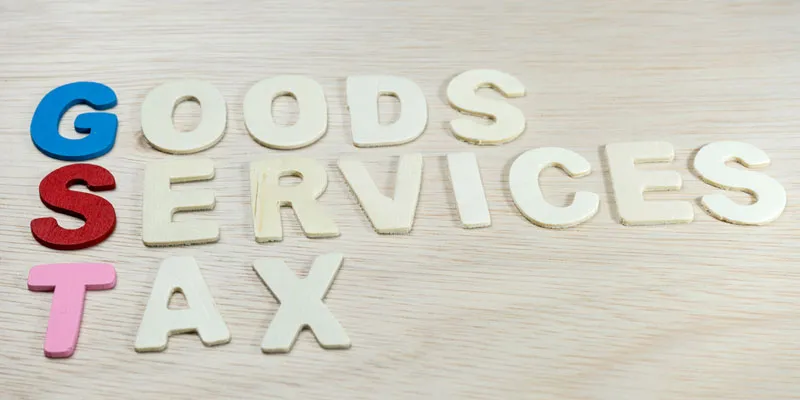How GST can help startups in India
Over past few years, the startup culture in India has evolved. Such startups can be both disruptive and innovative by re-imagining the traditional ways of doing business. Take the e-commerce sector, which has disrupted the traditional brick-and-mortar sales model to the electronic marketplaces model. There is a clear shift in Young India’s preference towards entrepreneurship i.e., from job search to job creation and providing new opportunities to MSMEs.

Based on a 2015 NASSCOM report, India ranks third globally with more than 4,200 startups. Startups in India are expected to go beyond 10,000 by 2020. The promising startup verticals are Internet of Things, analytics, health tech and hyperlocal e-commerce. Based on the report, India received $5 billion in funding in 2015, an improvement of 125 per cent growth year-on-year.
The government has also realised the need for startups as an important growth engine for the economy and society. In order to build a more conducive business environment, and for ease of doing business, the Government of India recently launched the “Startup India” campaign. A series of regulatory and tax-related perks and benefits have been proposed under the campaign for incubating growing startups. However, to further promote startups and create an environment for ease of doing business, reforms also need to be introduced from an Indirect Tax perspective. Goods and Services Tax (GST) is one such measure.
Simplicity
One primary attribute required in any taxation policy is that it should be simple to administer by the authorities and to comply by the assessees. The tax laws should work hand-in-hand with the businesses so as to benefit the economy and society at large.
Under the present regime, startups are required to obtain multiple registrations under various indirect tax laws (depending on the nature of operations) i.e., state-wise VAT registration(s), service tax, excise and other state levies. Moreover, there are different thresholds and documentation requirements with such laws. Further, practically, there is a high degree of manual interaction and intervention required for obtaining the registrations, and to undertake compliances.
Under GST, based on the business process document on registration release by the Joint Committee of the Government, it is expected that there would be standardised and centralised registration cell for obtaining the indirect tax-related registrations. This is likely to reduce time and effort for startups, thus allowing them to focus on the business concerns rather than tax compliance and administration. Though the compliances under GST may increase (given multiple returns), such return filings are likely to be online and only at single central portal.
In the Action Plan document on “Startup India” issued by the Department of Industrial Policy and Promotion, in order to reduce the regulatory burden on startups, the government has proposed self-certification compliances and no inspection (for the initial few years) by authorities for specified labour and environmental laws. Similar provisions should be introduced under the GST regime to further reduce the initial efforts of startups for obtaining registrations. The government may also consider setting up a separate dispute resolution panel for startups, wherein all the disputes viz. pending show cause notices, appeals are provided speedy disposal at a single window.
Practical challenges
While the government has brought about many positive changes in legislative provisions, the ground-level realities are very different. There are practical challenges in dealing with multiple tax authorities in terms of trying to explain the functioning of the new business models. It has been seen that the lower level officers lack the understanding of new business models, which is radically different from conventional businesses, both in terms of what these new commercial dealings are, and also how they are conducted. This is creating business impediments and obstacles to the growth and development of startups. Take for example, the e-commerce startups that are facing a host of issues in dealing with VAT authorities due to lower-level VAT officers’ lack of understanding of the marketplace/aggregator models. Some of the e-commerce startups have even stopped operations in Uttar Pradesh due to objections raised by VAT authorities.
It is anticipated that the current state tax borders would be diluted to a large extent under the GST regime. India as a single unified market is likely to ease doing business across state borders and provide greater opportunities for improving business avenues. Other benefits under this aspect are:
- Efficiencies and reduction in lead times for transportation of goods
- Reduction in cost of storage and transportation
- Supply chain is expected to become the sole function of business requirements
- Development of warehousing hubs that are organised and closer to dense consumer geographies
One India One Market is expected to yield huge benefits and opportunities for startups, especially in the e-commerce and logistics sector.
The current tax framework of Indirect Taxes in India is a deterrent/irritant for many startups. There is a blockage of inputs credits, which leads to an increase in cost for the startups. Taxes like Central Sales Tax (‘CST’), entry taxes, other state taxes like luxury/entertainment taxes are non-creditable. Further, credit of VAT cannot be used against output service tax and vice versa. This is expected to be resolved to some extent under GST as these taxes would be subsumed under the umbrella of GST. Increase in credits would help cut down on the tax cost for the startups and help them price their products more efficiently.
Further, it is generally a practice of the businesses in India to have warehouses on a state-wise basis. The purpose behind the same is not always the commercial consideration of being closer to consumer but also to enable buyers to take credit. CST, which is levied on inter-state transactions, is non-creditable and is a cost to buyer making inter-state purchases. By opening state-wise warehouses, credit of VAT is available to the buyers. Operating state-wise warehouses so as to pass the credit to the buyer is an inefficient model and adds to cost of operations. Under the GST regime, the distribution model is likely be based on commercial considerations rather than due to an inefficient tax structure.
Another aspect of the current Indirect Tax framework is the emergence of ambiguities on account of multiple taxes levied by different governments. Further, the manner in which the provisions under the current law are worded leads to differing interpretations and disputes. For example, many startups in India are focussing on software, applications and technology-based platforms. There are duplicate taxes on software, wherein both VAT (state VAT authority treats it as sale of goods) and service tax (central service tax authorities consider it provision of service) are charged on the same transaction. State governments in some cases have even sought to levy VAT on the service tax component charged by the software solutions provider. This is also true for the food and beverages sector, which has to deal with issues like the value on which the different indirect taxes would apply due to multiple taxes viz. service tax, VAT, luxury tax etc. GST is expected to remove the current levy of double taxation, thereby reducing the cost of end products and disputes that may arise due to ambiguity in laws.
Business-friendly tax
It is important that a business-friendly taxation policy be implemented, which is unambiguous and clear in its content, intent and administration. It is hoped that GST would provide some reprieve and have a positive impact on growth and development of startups. GST is expected to reduce the burden of tax, disputes, facilitate ease in starting and doing business, and work in synergy with the businesses. It is important that such procedures and policies under GST are followed at the ground level or else, the same may prove to be regressive and full of inefficiencies like the current indirect tax regime.
Just as a startup having an innovative idea is required to be executed well, GST is also such an idea, which needs to be executed and implemented in a proper manner so as to achieve the intended impact. GST should be a facilitative and efficient tax regime rather than a rebooted version of the old, inefficient model of taxation. GST is anticipated to play a vital role in providing a boost to startups in India, and help achieve their potential.







